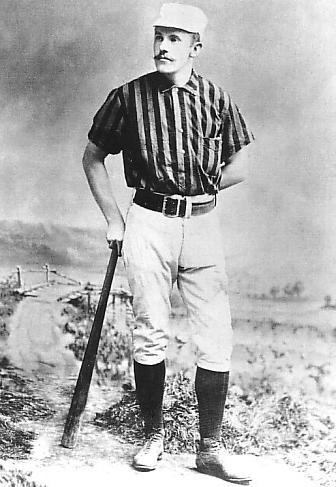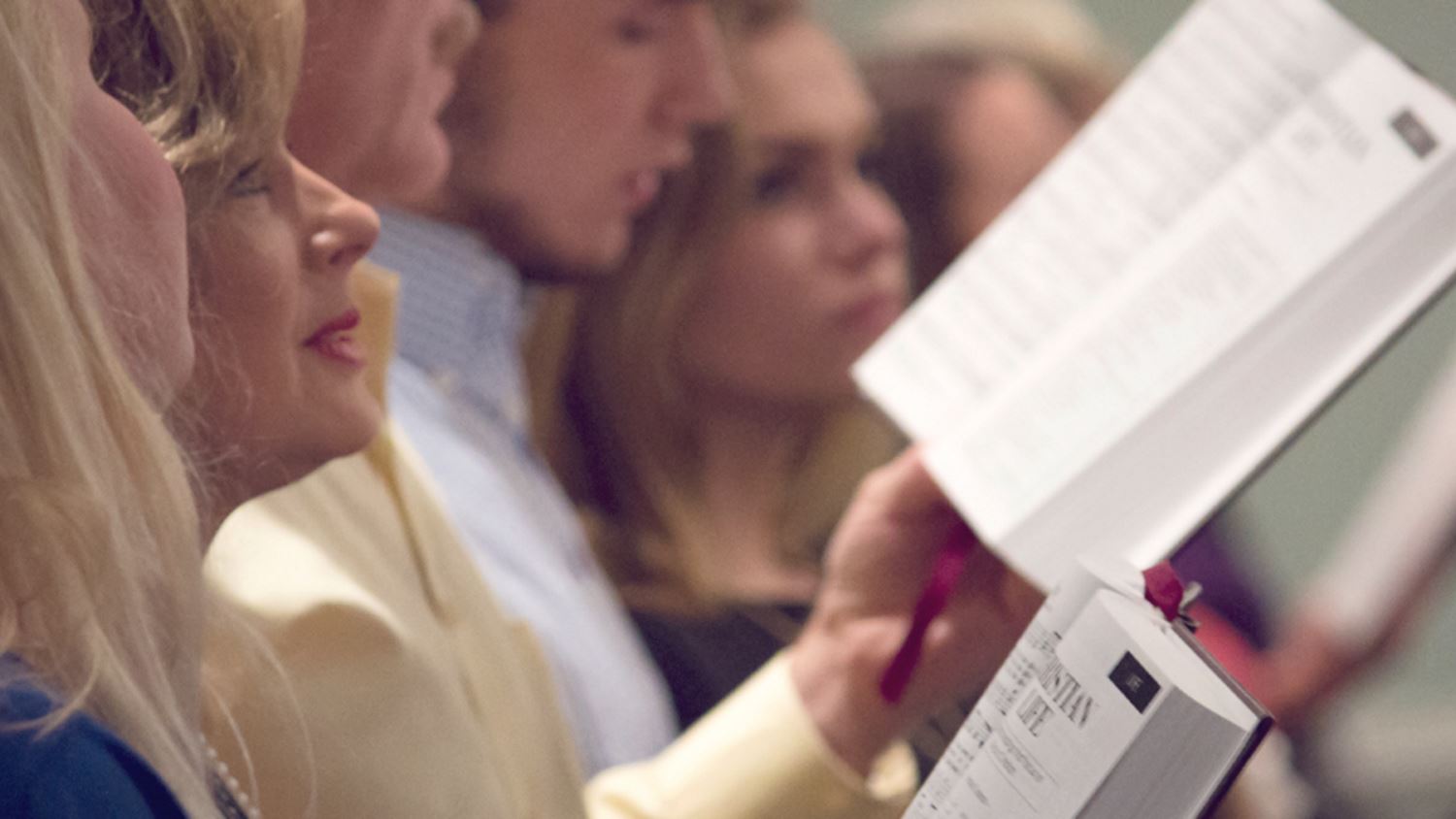 Read some of our Latest articles.
Read some of our Latest articles.
Truly, truly I say to you, when you were younger, you used to gird yourself, and walk wherever you wished. But when you grow old you will stretch out your hands, and someone else will gird you, and bring you where you do not wish to go. John 21.18
The day I realized I wasn’t young anymore was the day I caught myself kicking newspapers. We received two dailies at the time, the now-defunct Manassas Journal Messenger, and the Washington Post. One morning I realized I was kicking the two papers together so I only had to bend down once to pick them up. A little later I got into the habit of kicking them uphill so I wouldn’t have to bend over too far.
That was when I knew I wasn’t young anymore. Just last week I realized that I am old (some might say 55 is middle-aged – it is if you live to be 110). I was watching the Marx Brother’s classic, Duck Soup, and I caught myself thinking, “You know….that Margaret Dumont wouldn’t be half bad if she fixed her hair a little differently, and stopped strutting around like the Queen of Asgard.” When you start thinking Margaret Dumont was sort of cute back in 1933 you’re officially old (and in need of some new bifocals). Of course back in 1933 Margaret Dumont was only 45 – 10 years younger than I am now – but still.
I always thought of the passage above, from John’s gospel, in terms of incarceration. Jesus, in calling Peter a second time, makes clear what the cost of following him will be – it will mean the eventual loss of his freedom. Clearly Jesus is seeing the persecutions and arrests Peter will endure in the future. But there is a sense in which this prediction will come true for any of us who live long enough.
Anyone who has ever cared for an aging relative knows how easily, how quickly one can find oneself unable to “gird” oneself and holding out one’s hands so someone else can do the job. How many necessary destinations become places we don’t want to go?
The Bible is clear – the skin we’re in, the body we inhabit is just that – a habitation, not our selves. Paul calls it a “tent” in II Corinthians 5.1-10 – just a temporary dwelling for a pilgrim until he reaches home. My grandma used to like an old country song called “This Old House.” It has been recorded by everyone from Bette Midler to the Gaithers, but Stuart Hamblen released it first, back in 1953. In it he describes his body as a house that is falling apart, but he’s fine with that because he’s “goin’ to meet the saints.” It is a catchy, hopeful song….but it is wrong – we don’t have a house, only a tent.
Knowing this, as careful stewards of God’s gifts, we should take good care of our tents. But knowing this, our first priority is to “redeem the time” (Ephesians 5.16), “number our days” (Psalm 90.12), and “walk circumspectly” (Ephesians 5.15). We must “remember our Creator in the days of our youth,” and remember that the whole duty of a human being on earth is to “fear God and keep his commandments,” (Ecclesiastes 12.1,13).
As the Rich Man learned in Luke 16, we do not cease to be when we die, but we cease to be able to effect change – and thus we must never waste a moment, or an opportunity. Vigor must not be squandered – because like time, it is in limited supply.
Years ago my nephew Drew gave me The Pop-Up Book of Phobias as a Christmas gift. Although it is just the kind of thing I enjoy, I don’t look at it much – it is SO SCARRY! The frightening pictures pop out at you, and nothing prepares you for the horrors leaping at your face. The first page covers dentophobia (fear of dentists), and when you turn the page a dental drill pierces your personal space. The same kind of thing happens on the ophidiophobia page (fear of snakes) with a king cobra. The most creative page is the acrophobia page (fear of heights). You open it and find yourself looking over the ledge of a high skyscraper. The most frightening to me, the one that always produces nightmares is the coulrophobia page (fear of clowns). The sinister clowns (are there any other kind?) on this page are so menacing they make the clown in Stephen King’s It look like a Teletubby.
I am afraid of snakes (a little), and clowns (a lot), and at 55 I find myself becoming wary of heights. I still brave the dentist two or three times a year, and laugh cavalierly when I sit in his chair – so I still have that going for me.
David’s great fear was atertheophobia – a fear of losing God’s presence (that is a real word – I just coined it). God’s presence was the sole source of his confidence from his youth on. As a boy, when he was unafraid to fight the giant, Goliath, he explains the source of his courage:
When a lion or bear came and took a lamb from the flock, I went after him and attacked him, and rescued the lamb from his mouth. When he rose up against me I seized him by his fur and struck him and killed him. Your servant has killed both the lion and the bear, and this uncircumcised Philistine will be like one of them….The LORD who delivered me from the paw of the lion and the paw of the bear will deliver me from the hand of the Philistine. I Samuel 17.34-37
As a boy alone in the open countryside, protecting his few sheep, and faced with aggressive predators, David understood he was not alone. At a very early age he understood the blessing of God’s presence. This inner-conviction, which was marrow-deep, is expressed in Psalm 23. In this hymn David is himself the lamb, and God is the ever-watchful shepherd.
David also knew, early on, the effects of the absence of God – he was an eyewitness to what happened when Saul was separated from God’s presence. The Spirit of the LORD departed from Saul, and an evil spirit from the LORD terrorized him (I Samuel 16.14). Because of David’s reputation as a musician he was brought in to sooth Saul. Whenever the evil spirit from God came David would take the harp and play it, and Saul would become refreshed and well, and the evil spirit would depart from him (I Samuel 16.23). The youthful David saw with his own eyes what happens to a man separated from the presence of God – it must have been frightening.
So when David was caught in the web of sin he created by taking Bathsheba, his great fear was that he would lose the presence of God, just as Saul had.
David’s prayer of repentance is recorded in Psalm 51. It was a public repentance, because it was sent to the “choir director”. In this prayer-song David did not plead to keep his throne, his life, his position, his wealth, or even his dignity. His asked for one thing – God’s continued presence.
Do not cast me away from your presence. Do not take your Holy Spirit away from me. Psalm 51.11
When we repent, when we pray, what are we most concerned about? Avoiding consequences? Saving face? Escaping pain? Or do we care most about being right with God when we stand in His presence? A dose of atertheophobia might be a healthy thing for us all.
- Barry Bryson
Atertheophobia
Years ago my nephew Drew gave me The Pop-Up Book of Phobias as a Christmas gift. Although it is just the kind of thing I enjoy, I don’t look at it much – it is SO SCARRY! The frightening pictures pop out at you, and nothing prepares you for the horrors leaping at your face. The first page covers dentophobia (fear of dentists), and when you turn the page a dental drill pierces your personal space. The same kind of thing happens on the ophidiophobia page (fear of snakes) with a king cobra. The most creative page is the acrophobia page (fear of heights). You open it and find yourself looking over the ledge of a high skyscraper. The most frightening to me, the one that always produces nightmares is the coulrophobia page (fear of clowns). The sinister clowns (are there any other kind?) on this page are so menacing they make the clown in Stephen King’s It look like a Teletubby.
I am afraid of snakes (a little), and clowns (a lot), and at 55 I find myself becoming wary of heights. I still brave the dentist two or three times a year, and laugh cavalierly when I sit in his chair – so I still have that going for me.
David’s great fear was atertheophobia – a fear of losing God’s presence (that is a real word – I just coined it). God’s presence was the sole source of his confidence from his youth on. As a boy, when he was unafraid to fight the giant, Goliath, he explains the source of his courage:
When a lion or bear came and took a lamb from the flock, I went after him and attacked him, and rescued the lamb from his mouth. When he rose up against me I seized him by his fur and struck him and killed him. Your servant has killed both the lion and the bear, and this uncircumcised Philistine will be like one of them….The LORD who delivered me from the paw of the lion and the paw of the bear will deliver me from the hand of the Philistine. I Samuel 17.34-37
As a boy alone in the open countryside, protecting his few sheep, and faced with aggressive predators, David understood he was not alone. At a very early age he understood the blessing of God’s presence. This inner-conviction, which was marrow-deep, is expressed in Psalm 23. In this hymn David is himself the lamb, and God is the ever-watchful shepherd.
David also knew, early on, the effects of the absence of God – he was an eyewitness to what happened when Saul was separated from God’s presence. The Spirit of the LORD departed from Saul, and an evil spirit from the LORD terrorized him (I Samuel 16.14). Because of David’s reputation as a musician he was brought in to sooth Saul. Whenever the evil spirit from God came David would take the harp and play it, and Saul would become refreshed and well, and the evil spirit would depart from him (I Samuel 16.23). The youthful David saw with his own eyes what happens to a man separated from the presence of God – it must have been frightening.
So when David was caught in the web of sin he created by taking Bathsheba, his great fear was that he would lose the presence of God, just as Saul had.
David’s prayer of repentance is recorded in Psalm 51. It was a public repentance, because it was sent to the “choir director”. In this prayer-song David did not plead to keep his throne, his life, his position, his wealth, or even his dignity. His asked for one thing – God’s continued presence.
Do not cast me away from your presence. Do not take your Holy Spirit away from me. Psalm 51.11
When we repent, when we pray, what are we most concerned about? Avoiding consequences? Saving face? Escaping pain? Or do we care most about being right with God when we stand in His presence? A dose of atertheophobia might be a healthy thing for us all.
- Barry Bryson
John Montgomery Ward (yes, of those Montgomery Wards) pitched the second perfect game in Major League Baseball history on June 17, 1880 – 137 years ago – a 5-0 victory for Providence over Buffalo. He pitched it just five days after the first perfect game was pitched by J. Lee Richmond. Another perfect game would not be pitched until Cy Young shut down Philadelphia on May 5th, 1904. Some purists believe there should be an asterisk by Ward’s name. Because the start time of the game had been moved up from 3:30 pm to11:00 am to allow for an afternoon event, every batter Ward faced was looking squarely into the sun. Of course every Providence batter squinted into the same sun, and they still managed to score 5 runs – but some think this unfair advantage diminishes Ward’s accomplishment.**
Some purists try to put an asterisk next to just about every name in the record books. Some say Emit Smith, and Walter Peyton before him should have an asterisk next to their records for career rushing yards since they played 14 and 16 game seasons, while Jim Brown played 12 game seasons. Many believe Barry Bonds should have an asterisk next to his career and single season home run records since he almost certainly used performance enhancing drugs. Others argue that Babe Ruth had plenty of chemicals in his veins back in the day, although I don’t think alcohol and nicotine ever enhanced anyone’s performance.
The writer of Ecclesiastes reminds us that: The race is not to the swift, nor the battle to the strong, nor bread to the wise, nor riches to the intelligent, nor favor to those with knowledge, but time and chance happen to them all (9.11). We can point to almost any human achievement and find elements of advantage, coincidence, and dumb luck that made it possible. Once you start slapping on asterisks, where do you stop?
On judgment day, when all our deeds are scrutinized, our failures will be indefensible for God has given us the resources to succeed (II Peter 1.3), and has managed our challenges so that they are not more than we are able to bear (I Corinthians 10.13). But our successes – will we be able to truly own them? How many of our good deeds are done selfishly, or even accidentally? How often are they so poorly planned that without a huge dollop of luck they would have imploded? Since every circumstance will be exposed, how many moments of unmitigated goodness will any of us have to our names? How many of our achievements will stand without an asterisk?
This is true for us all - for every human who lives, has lived, or will live – except for Jesus. Jesus’ life admits no asterisks. He is perfect (Hebrews 4.15). Therefore, we are blessed that when God sees us He sees Jesus, because as Christians we wear Christ: For as many of you as were baptized into Christ have put on Christ (Galatians 3.27).
When God sees us he sees Jesus. We put Him on in baptism, and unless we take Him off through rebellion or neglect, He envelops us. We are saved because of Jesus, not because of ourselves – it is the Gift of God (Ephesians 2.8). My salvation is not my own – it has been given to me. Thus in the Book of Life, my entry would read:
Barry E. Bryson, b. 4/24/1962: Saved.*
*By grace.
**Perfect, James Buckley Jr., 2002, pp.19-29.
I used to regularly cite a 2002 article in the Atlantic to my college classes. The article, “The New Christianity,” by Phillip Jenkins (October 2002, pp. 53-68), is a bit of a panic piece. Jenkins is worried that vigorous forms of evangelical Christianity will derail social progress around the globe. He claims: “The changes that Christian reformers are trying to inspire in North America and Europe run contrary to the dominant cultural movements in the rest of the Christian world.” He further asserts that “radical Protestant sects, either evangelical or Pentecostal, or Roman Catholic of an orthodox kind – are stalwartly traditional or even reactionary by the standards of economically advanced nations.” The threat was great, he believed, because Christianity was growing so fast at the time.
Fifteen years later the growth of Christianity world-wide has stagnated. In this country the number of citizens who identify as “Christian” has shrunk from nearly 90% to less than two thirds. Regular church attendance among Christians has taken a bigger hit. One might think that the editorial staff at the Atlantic would celebrate this loss of vigor, but they are actually commiserating over it.
In an article titled “Breaking Faith,” (April 2017, pp. 15-17), Peter Beinart regrets the loss of the ameliorating influence Christianity used to have on the tensions in our culture. He draws a direct line between the decline of Christianity (especially regular church-attendance) and the breakdown of polite discourse among us. He points out that regular church attenders in every group – republicans, democrats, tea-partiers, and the Black Lives Matter movement – are exponentially less likely to hold extreme positions, and more likely to be tolerant of other’s opinions. The people who identify as Christian who don’t attend church regularly are much more likely to engage in angry exchanges in person and on the internet. These unaffiliated “Christians” in every group – republicans, democrats, tea-partiers, and the Black Lives Matter movement – are much more likely to take extreme positions.
After spending three pages detailing the declining influence church-going Christians have on the culture, Beinart concludes with this paragraph:
“For years, political commentators dreamed that the culture war over morality that began in the 1960’s and 70’s would fade. It has. And the more secular, more ferociously national and racial culture war that has followed is worse.”
In Matthew 5.9 Jesus says, Blessed are the Peacemakers, for they shall be called the children of God. That word, “Peacemaker,” is one Jesus coined. Peace can be “kept” by force, by artifice, by intimidation, but it can only be “made” by Jesus. Jesus offers a quality of Peace unique to Him (John 14.27, 16.33). His disciples share in this peace, and share this peace. When there are fewer of us to share the peace of Jesus, and when fewer of us practice peace, everyone suffers.
We are supposed to be salt and light. We are supposed to make a visible difference (Matthew 5.13ff). We will not convince everyone (or even “most everyone”) to walk the straight and narrow (Matthew 7.13-14), but we can make the world better for everyone.
For where jealousy and selfish ambition exist, there is disorder and every evil thing. But the wisdom from above is first pure, peaceable, gentle, reasonable, full of mercy and good fruits, unwavering, without hypocrisy. And the seed whose fruit is righteousness is sown in peace by those who make peace. James 3.16-18
Everyone is blessed by the peacemakers.
In our Sunday morning Bible class we have been talking about the occupation of the heavenly host. The host of heaven is occupied with praise. This praise is done together. Revelation 4 -5 make this clear. Also clear is that the host of heaven is happy…no – ecstatic. We want to join that ecstatic throng. We sing “When We All Get to Heaven,” “When All of God’s Singers get Home,” and “Heaven Holds All to Me.” We look forward to exactly this moment – when all of us, together, sing praise to God, gathered around His throne forever.
And yet in my 35 years of ministry I have spoken to countless brothers, and even a few sisters who claim to dislike hymn-singing. Many even go so far as saying they dislike any music. This is beyond my comprehension. How could anyone not enjoy singing hymns? I would forego getting my 32 inch-waist, and my full head of hair back a hundred times if I could enjoy the full strength of my voice again. One of the great things about heaven, to me, is that we will “sing and never get tired” just like the old spiritual promises. How can one look forward to heaven if one dislikes hymn-singing?
That second salient feature of the description of Heaven - that we are always all together – is a little tougher for me. I’m not fond of crowds. Heaven is clearly a crowd. I like alone time. Heaven promises none of it. I am used to a healthy margin of personal space – something Heaven seems not to offer. And so I must ask myself: “okay, Mister Prickly Pear, if you can’t abide being a bee in a hive, how can you look forward to heaven.”
The answer is simple. The glory we will experience together, around God’s very Person, cannot be compared to any human experience here on Earth (Romans 8.18). One may not like hymn-singing here, but nothing here will be as blissful as singing there. One may despise being crowded and jostled here, but nothing here will be as satisfying as being together there.
Our brains struggle to visualize the descriptions John gives in Revelation 4-5, and 21-22. John is reduced to describing shapes and colors – arcs and cubes, greens and golds and reds. But the effect of glory and exhilaration is achieved by the limited tools of human language. Heaven radiates off the pages of scripture. We know it is a place of no pain, no regret, no emotional baggage, no loneliness, no longing, no deprivation, no parting. It is the place where God makes everything new.
And so whether we love hymn-singing or dislike music altogether, whether we love the excitement of the crowd or prefer solitude, we look forward to heaven anyway. Heaven is the place we belong. It is the place made for us (Matthew 25.34, Philippians 3.20). Here we are aliens and strangers (I Peter 1.1). This displacement, this refugee life is stressful and creates in us a longing for home (II Corinthians 5.1-10).
Heaven is where we belong. Nothing else matters. We may not be able to imagine enjoying an eternity without chocolate, or golf, or caffeine, or football, or a thousand other things. But our anemic imaginations cannot dim our longing for home, or our conviction that Heaven will exceed all expectations.






